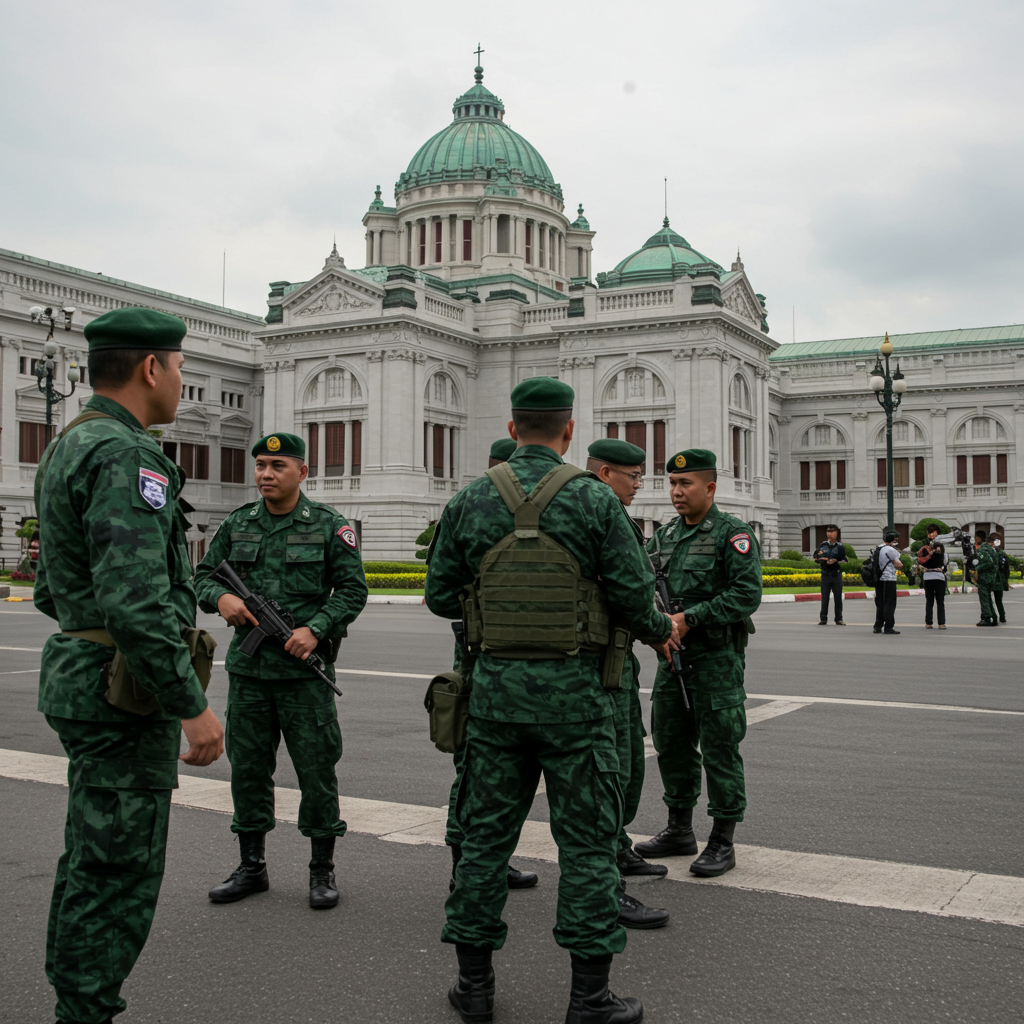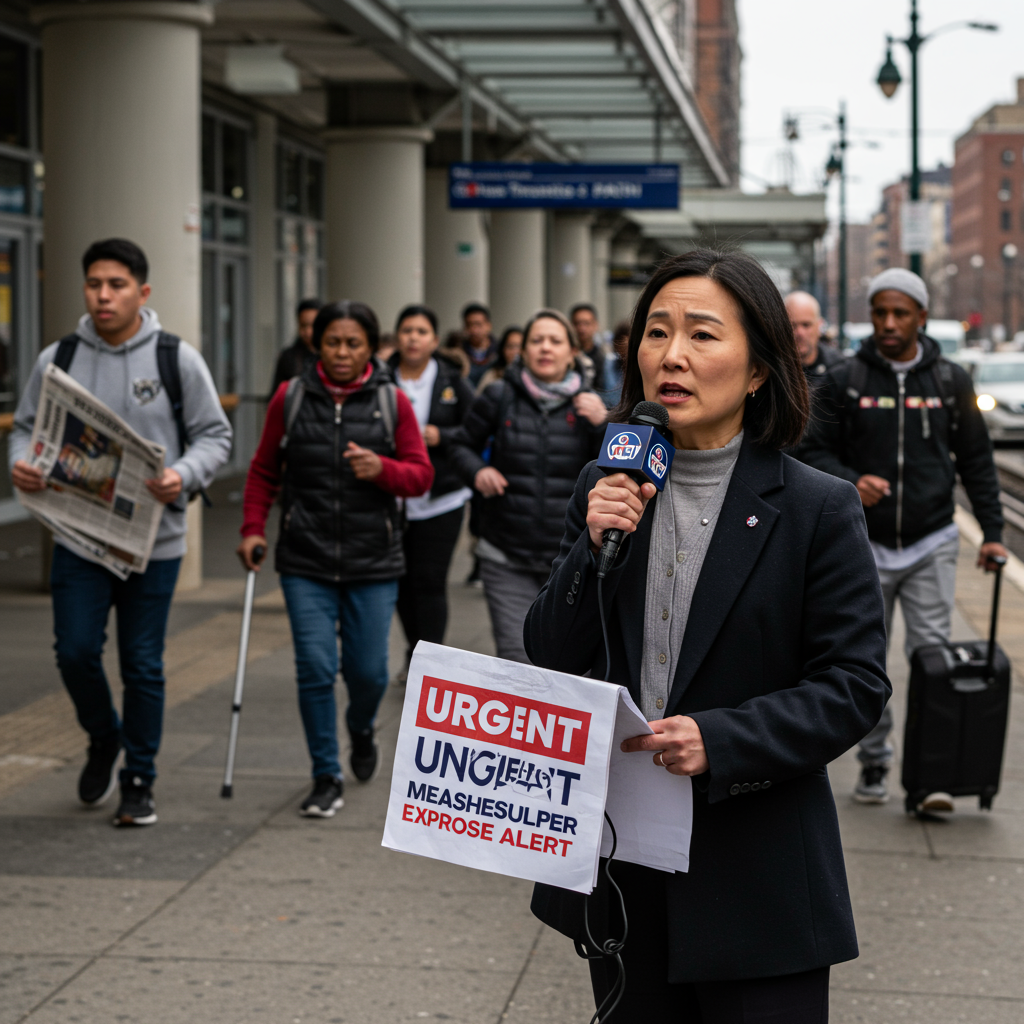Thailand faces a persistent shadow: the specter of <a href="https://news.quantosei.com/2025/06/29/bangkok-protests-thousands-rally-to-call-for-thai-pm-paetongtarn-shinawatra-to-resign/” title=”Thai PM Under Pressure After Leaked Call Sparks Protests”>military intervention. This Southeast Asian nation holds the unfortunate distinction of being the only middle or high-middle income country experiencing regular military coups. Since abandoning absolute monarchy in the 1930s, Thailand has witnessed twenty-two coup attempts, thirteen of which successfully overthrew civilian governments. This history isn’t just a statistic; it has embedded a “coup culture” within the military, normalizing the idea of seizing power when leaders perceive political chaos.
Understanding Thailand’s Deep-Rooted Military Influence
Thailand’s military has long wielded immense power, far exceeding its role in many other developing democracies. Military leaders view the army, alongside the monarchy, as the central pillars of the nation. They see themselves as essential bulwarks against instability. This includes protecting against what they perceive as “political chaos,” a broad term often applied to normal democratic processes like robust parliamentary debate, legitimate popular protests, or challenging political tactics. The military’s deep penetration into all sectors of society grants it significant leverage. It fosters an environment where intervention is not just a possibility, but a recurring tool in the political landscape. Less international scrutiny, particularly from the United States which has reportedly reduced focus on Thai human rights issues according to analyses of shifting US foreign policy priorities, may also lessen external pressure on the military.
The Monarchy’s Role and the Shinawatra Conflict
Underlying conditions currently appear fertile for another military takeover. The reigning monarch, King Vajiralongkorn, reportedly lacks the widespread popular affection his father commanded. However, he is seen as more overtly involved in political affairs. Sources suggest he is personally unstable but potentially open to approving a coup. This would likely depend on the military aligning the intervention with his interests. A key interest appears to be ensuring the permanent neutralization of the powerful Shinawatra political dynasty. The Shinawatra family, currently led politically by Prime minister Paetongtarn Shinawatra, has repeatedly clashed with the military and conservative elites. Their leader, former Prime Minister Thaksin Shinawatra, reportedly alienated the military since his return from exile in 2023. This included perceived overreach in foreign policy matters, such as attempting to intervene in Myanmar peace negotiations or boundary disputes with Cambodia. These actions are viewed by the military as civilian leaders encroaching on sensitive domains. Navigating complex regional dynamics, such as recent discussions with China regarding border issues near Myanmar, further highlight civilian involvement in areas the military sees as its own.
The Post-Election Political Landscape
The 2023 national election brought a complex outcome. A progressive party favoring military reform, popular among younger voters, won the most seats but fell short of a majority. Instead, the Pheu Thai party, historically linked to the Shinawatras and securing the second-largest number of seats, formed a coalition government. This coalition notably included pro-military parties, some led by generals involved in the 2014 coup. This arrangement put the military, which had faced pressure from reform movements and large street protests in preceding years, back on stronger footing.
A Government Dependent on Military Partners
While the coalition government gained enough votes for parliamentary control, this alliance left Pheu Thai and Prime Minister Paetongtarn Shinawatra in a precarious position. As a Prime Minister with limited prior political experience, her administration’s survival became heavily reliant on its pro-military coalition partners. This created a government perceived as weak and vulnerable. The reduced focus on Thai human rights from key international players, including recent US administrations, also meant less external constraint on the military’s potential actions.
Signs of Aggressive Military Reassertion
In recent months, the Thai military has abandoned its relatively quiet stance following the 2023 elections. It has aggressively re-entered the public and political arena. Military leaders have taken actions seen as actively taking power away from elected officials. They have crossed traditional boundaries to demonstrate their dominance. Many of these actions mirror steps taken before past coups. Military figures have consistently criticized Prime Minister Paetongtarn, specifically accusing her of being weak on national security matters.
Breaching Boundaries and Public Statements
The military has taken several clear and concerning steps. They signaled a willingness to breach established norms to assert their influence. While foreign academics working on sensitive Thai issues are rarely detained, the military filed lese majeste (insulting the monarchy) charges in April 2024 against Paul Chambers, a prominent US-based Thailand expert. He was detained despite his analysis being similar to prior work. This move angered the US White House and reportedly damaged US-Thai trade talks, indicating the military prioritized its agenda over civilian government goals. Breaking from the typical military practice of claiming each coup is the last, Deputy Prime Minister and Defense Minister Phumtham Wechayachai publicly stated in May 2024 that another coup “could not be ruled out.” This explicit acknowledgment from within the government itself was a significant signal.
The Border Conflict as a Catalyst
A skirmish with Cambodian forces in a disputed border region on May 28, 2024, killing one Cambodian, provided a potential flashpoint. The Thai military immediately sought to escalate tensions, claiming Cambodia fired first. Since May, the military has reportedly provided the civilian government with confusing briefings regarding the conflict. This action further undermined Prime Minister Paetongtarn’s image and made her appear ineffective in handling a national security crisis.
Using Nationalism to Undermine the Government
Thailand’s escalation strategies in the border dispute, which included increasing troop presence, closing borders to Cambodian visitors, suggesting export bans, and discussing larger military operations, have served a clear political purpose. These actions have successfully stoked nationalist sentiment across Thailand. This environment allows the military to paint any politicians expressing concerns about military activity as unpatriotic or even traitors. Such actions boost public support for the army and further damage the Prime Minister’s standing. Her credibility was further weakened by a leaked phone call with Cambodian Prime Minister Hun Sen, where she allegedly disparaged a senior Thai army leader and seemed overly willing to compromise on the border issue.
Political Maneuvering and Historical Echoes
Adding to the indicators, ultranationalist groups that strongly support the military and monarchy are once again highly visible. These groups frequently hold large, sometimes violent rallies in the weeks or months leading up to past coups. Experts note these groups are actively fueling conflict and questioning the legitimacy and patriotism of the current government. This behavior aligns with their role before prior military interventions.
Both Thai and international experts observe strong parallels between recent military actions and the trajectory leading up to the 2006 and 2014 coups. Both previous coups involved Shinawatra-led governments facing military opposition. Border disputes with Cambodia were also utilized by the military and conservative elites to portray democratic governments as threats to national sovereignty. This allowed them to justify military intervention. Once again, the military is openly suggesting the civilian government is too weak and inexperienced to handle crises, using the border issue as potent symbolism.
The Threat of a No-Confidence Vote
Pro-military actors within parliament are also actively working to destabilize and potentially remove the current Prime Minister. The pro-military Bhumjaithai Party, previously part of Paetongtarn’s ruling coalition, has withdrawn its support. They have called for a no-confidence vote against the government, scheduled for the near future in parliament. If this vote succeeds, it would collapse the current administration and potentially trigger new elections. This scenario could provide the military with a clear pretext. They could claim that domestic politics are in disarray and that only military intervention can restore order and prevent total political destabilization. While the Shinawatra family is reportedly determined to survive the vote, the outcome remains uncertain. Even survival might result in an unstable coalition, offering the military yet another potential reason to step in.
While predicting the exact timing of a military takeover is inherently difficult in the opaque world of Thai power politics, multiple converging signs point towards increased risk. The combination of deep-seated military influence, underlying political fragilities, aggressive recent military actions, exploitation of the border conflict, the resurgence of nationalist groups, and active parliamentary maneuvering create a volatile environment. While a coup may not occur within days, the conditions are rapidly ripening. Should civilian politics become sufficiently destabilized, a military intervention could become a distinct possibility within weeks or months.
Frequently Asked Questions
What makes Thailand prone to military coups?
Thailand has a long history of military coups since the end of its absolute monarchy in the 1930s. The military sees itself, alongside the monarchy, as a key protector of national stability and culture. This has fostered a “coup culture” where military intervention is seen as an acceptable, albeit disruptive, tool to resolve political crises, particularly when the military perceives civilian governments or democratic processes as chaotic or threatening.
How is the current political situation setting the stage for a potential coup?
The current government, led by Prime Minister Paetongtarn Shinawatra from the Pheu Thai party, is a weak coalition that includes pro-military partners despite Pheu Thai’s historical links to the Shinawatra family, which the military opposes. Prime Minister Paetongtarn is seen as inexperienced. The politically active King Vajiralongkorn is also perceived as potentially willing to support a coup if it aligns with his interests, particularly weakening the Shinawatra dynasty.
What specific recent events suggest a coup might be coming soon?
Recent indicators include the military’s aggressive return to the political arena after the 2023 election. This involves openly criticizing the Prime Minister’s handling of national security, taking unprecedented actions like filing charges against a foreign academic (Paul Chambers), and a Deputy Prime Minister explicitly stating another coup isn’t ruled out. The military’s handling and escalation of the May 2024 Cambodia border skirmish and the push for a no-confidence vote against the government by a former coalition partner also contribute to the volatile climate, alongside the resurgence of ultranationalist groups.



